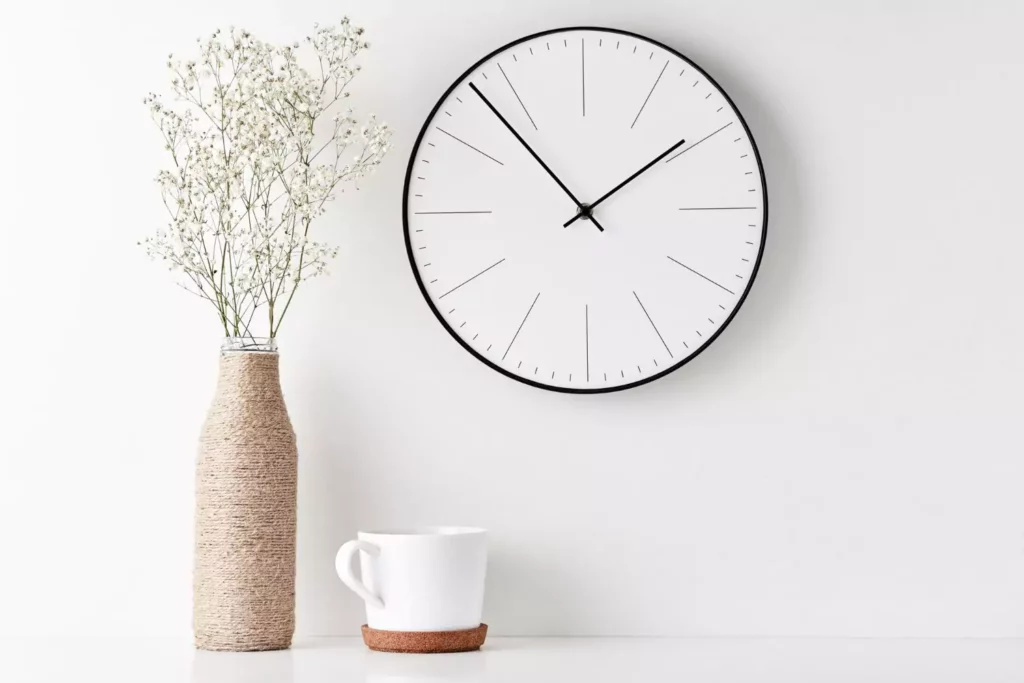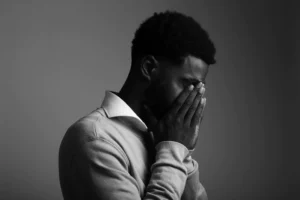I remember the first day M walked into my apartment. Being Swedish, he had a very particular sense of design. His apartment, which I’d seen while hanging out watching movies or cooking, was sparse, but beautifully decorated. It had only the essentials. Only what was needed. Only what added to the mysigt (the Swedish equivalent to coziness) of life at home.
M surveyed my living space, adorned with its bright paintings, 400-plus books and a ton of throw pillows. Though much sparser than what I grew up with, my apartment shocked M with the sheer number of things occupying its space. The comments kept coming as he tried to understand why I had “so much stuff.”
‘Tis a Gift to Be Simple
His remarks made an impression on me. Up to that point, my sentimental self couldn’t bear to throw away a gift or donate an item attached to a special memory. Then, at 34, I decided to change my direction and take a breather from a fast-paced career.
With no debt, a small consulting business and a need to rest, I decided to go on sabbatical and leave Sweden. Armed with 12 years of “stuff” from building my life abroad, I did not want to fall into the trap of arriving at my next destination, annoyed that I spent a significant amount of my hard-earned money carting back things I could easily replace. And honestly, M’s words stuck in my head: “Why do you have so much stuff?”
Why did I have so much stuff?
I realized my things had become a bit of a burden. A good part of Saturday mornings had to be spent cleaning, dusting and trying to keep it all straight. I loved my books, but did I need so many? And what about the clothes I’d scattered haphazardly across my floor as I searched for my gym clothes before work?
As I began to discard, give away and pack, I decided that I would only keep the things that made me happy. After getting rid of 95 percent of my stuff, I felt so free. (And to be honest, I don’t even remember half of what I had before!) Had I become a minimalist? And if so, what was that and how did it fit into my life as a Christian?
A Case for Simplifying
Minimalism seems to be everywhere. Whether the Project 333 challenge or the revolution led by The Minimalists or even the best-selling book “The Life-Changing Magic of Tidying Up,” living with less is a popular concept that is changing lives.
While we live in relative excess in the Western world, the financial crisis and recession that started in 2008 changed our priorities. By necessity, we have come to see that there are alternative, simpler ways of living. That is part of the reason, I believe, minimalism is gaining popularity, especially among Millennials.
According to the article “Millennials Go Minimal: The Decluttering Lifestyle Trend That Is Taking Over,”
“Millennials have a unique set of values around how they choose to spend their money. They grew up during the recession, entered a struggling job market and must now pay off record amounts of student debt.”
In the past, there’s been a tendency to strive to keep up with the Joneses, accumulating material goods. But with a growing population and less money in our wallets, we are prioritizing experiences and community over stuff.
Overemphasizing Minimalism
As appealing as the prospect of paring down may be, minimalism, like anything, can be taken too far. As a Christian I didn’t want to legalistically adhere to a lifestyle that went against my beliefs. And I had come across some ideologies that leaned too much on the humanistic end, idolizing minimalism.
I also met Christians who saw minimalism as biblical. Jesus was a minimalist, after all. While our Savior is certainly an example to us in many ways, Jesus never spoke about money being evil or possessions being bad. What He did teach is that the love of money is the root of all evil, and that where your treasure is, your heart will be also.
The Bible has a lot to say about managing resources wisely and not chasing after wealth and possessions. In that sense, the practical nature of minimalism can help us honor God through living out biblical principles.
Jesus sums it up nicely in Matthew 6:19-21:
Do not lay up for yourselves treasures on earth, where moth and rust destroy and where thieves break in and steal, but lay up for yourselves treasures in heaven, where neither moth nor rust destroys and where thieves do not break in and steal. For where your treasure is, there your heart will be also.
In his book “Living With Less: An Unexpected Key to Happiness,” Joshua Becker draws similar conclusions. He points out that two things — intention and conscious consumption — are the keys to minimalism as a Christian. In an interview, he said, “We want to become less attached to worldly things and more attached to godly things.”
Minimalism, in practice, asks the questions: Does this “stuff” bring my life value? Am I spending beyond my means? What is my intention when I am buying? Collecting? Consuming? Spending?
If our ultimate goal is to keep Christ at the center of our lives, perhaps a lifestyle that doesn’t emphasize stuff is something to consider. But as someone who experienced legalism as a child, I haven’t wanted to become dogmatic about minimalism.
Instead I attempt to keep Christ at the center of my life as I make intentional choices about my stuff. I try to ask myself if I am buying and consuming in a manner that honors and glorifies Him. And, conversely, am I ridding myself of things that might be a distraction or hold me back?
I certainly don’t believe we should all live in tiny houses with 33 items of clothing and no extra belongings. That’s not practical for everyone. However, if you are spending every Saturday trying to tame the clutter, you may want to consider lightening your load. Maybe you’re in debt, overwhelmed by clutter or wondering where you’re going to find more storage for all of your stuff. If so, it might be time to cast off some possessions and experience the freedom that comes through living with less.
Try putting half of your stuff in storage for a month and see if you miss it. If you don’t, donate it. Save money to invest in larger, more substantial belongings rather than hitting the dollar section hard at your favorite store.
The Simple Life
As I prepared to move and got rid of a lot of my clothes and other belongings, I decided I wanted to establish a new, more intentional relationship with my stuff. Here’s what that looked like in several areas:
Clothing.
I quit spending money on pretty clothes I will only wear once. Instead, I stick to a color palette — mine is black, gray, white and light pink. I kept some extra fun pieces, but they’re special: a vintage dress, cardigan and jacket and a lot of boots. Even after paring down, I still have more clothes than I can wear.
Furnishings.
When it comes to household items, I kept paintings and art that means a lot to me. I also held on to mugs from my travels. When I enjoy my coffee in one of those cups, it fills me with the joy and happiness of my favorite memories.
Books.
(Yes, books merit their own category!) When I want to buy a new book, I think about whether I could get it at the library instead, or will I want to cherish and keep or share the book? Will buying this novel give me a temporary high? Or is it something I have considered buying for more than five minutes?
Gifts.
When I purchase things for others, I consider whether I’m adding value to their lives. Sure, it’s fun to pick up trinkets, but perhaps taking my friend out for dinner or offering to babysit so she can get a night out would be something that adds greater value to her life.
In “Materialism vs. Minimalism: You’re Both Wrong,” author Fred Perrotta says,
“The important thing is to understand your goals, then figure out a way to reach them. For some people, the goal is to own very little and travel the world. For others, the goal is to own a home where they can raise a family.”
Whatever your goals are, consume in a way that will help you meet them. Minimize excess. Stop saying yes to something today that will bring you no joy tomorrow. And above all, treasure the things that moth and rust cannot destroy.
Copyright 2017 Michelle Plett. All rights reserved.












